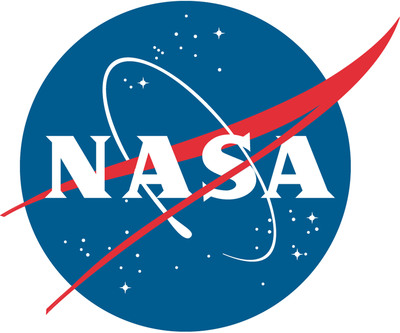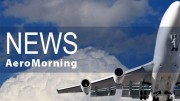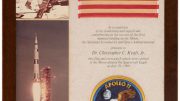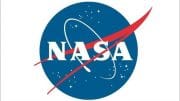HOUSTON, Jan. 5, 2018 /PRNewswire-USNewswire/ — After nearly 48 years of federal service, veteran NASA astronaut and Earth and planetary scientist Mario Runco Jr. has retired from NASA; his last day with the agency was Dec. 31.

“Mario has had a tremendous career as an astronaut, scientist, and mentor at NASA,” said Pat Forrester, chief astronaut at NASA’s Johnson Space Center in Houston. “He helped design observatory facilities on the International Space Station that have led and will continue to lead to important discoveries. His energy and love for exploration will be missed.”
As an astronaut, Runco logged over 551 hours in space during three space shuttle missions. He conducted one spacewalk and helped deploy four satellites. During his career, he supported more than a dozen other space shuttle missions in various roles before moving into his final role was as an Earth and planetary scientist.
Runco joined NASA in 1987 and remained on active duty as a NASA astronaut until 1994. On his first flight, Runco served on the crew of STS-44 aboard the Space Shuttle Atlantis in 1991, helping to deploy a Defense Support Program satellite. Runco served as a mission specialist on STS-54 aboard the Space Shuttle Endeavour, conducting a 4.5-hour spacewalk and helping deploy a NASA Tracking and Data Relay Satellite. The mission also carried the Diffuse X-Ray Spectrometer, designed to expand the knowledge of stellar evolution, which scanned the local vicinity of our Milky Way galaxy for low-energy X-ray emanations believed to originate from an ancient supernova. Runco also served as a mission specialist on the crew of STS-77 aboard Endeavour in 1996 supporting a number of technology development and microgravity science experiments, and deploying two satellites, one utilizing the Space Shuttle Robotic Manipulator System.
At Johnson Space Center, Runco served as a spacecraft communicator (CAPCOM) for 18 space shuttle missions; helped design, develop and test the space shuttle crew escape system following the Challenger accident; and performed test and evaluation of space shuttle mission-specific flight software in the Software Avionics Integration Laboratory (OV-95). At the Kennedy Space Center in Florida, he helped prepare space shuttles and their crews for launch.
Runco’s final role was as an Earth and planetary scientist at Johnson, serving as lead for spacecraft window optics and utilization helping with the design, development, and utilization of both the International Space Station‘s Earth-viewing optical quality science window and the Window Observational Research Facility, both of which remain in active use today.
Runco was born in the Bronx, New York. He holds a Bachelor of Science degree in Earth and Planetary Science from the City College of New York, a Master of Science degree in Meteorology from Rutgers University, and an Honorary Doctor of Science degree from the City College of New York.
After graduating from Rutgers University, Runco worked for a year as a research hydrologist, conducting groundwater surveys for the U.S. Geological Survey on Long Island, New York. In 1977, he joined the New Jersey State Police and worked as a New Jersey State Trooper until he entered the Navy in June 1978. Upon completion of Navy Officer Candidate School in Newport, Rhode Island, in September 1978, he was commissioned and assigned to the Naval Research Laboratory in Monterey, California, as a research meteorologist. From 1981 to 1983 he served as meteorological officer aboard USS NASSAU (LHA-4) where he earned his Surface Warfare Officer designation. From 1983-1985 he served as a laboratory instructor at the Naval Postgraduate School in Monterey, California, and in 1986 as Commanding Officer of Oceanographic Unit 4 embarked in USNS CHAUVENET (T-AGS 29), conducting hydrographic and oceanographic surveys of the Java Sea and Indian Ocean. His final Navy billet in 1987 was as a fleet environmental services officer at Pearl Harbor, Hawaii.
Find Runco’s complete biography at:
https://www.jsc.nasa.gov/Bios/htmlbios/runco.html
SOURCE NASA








Be the first to comment on "Astronaut Mario Runco Jr. Retires from NASA"